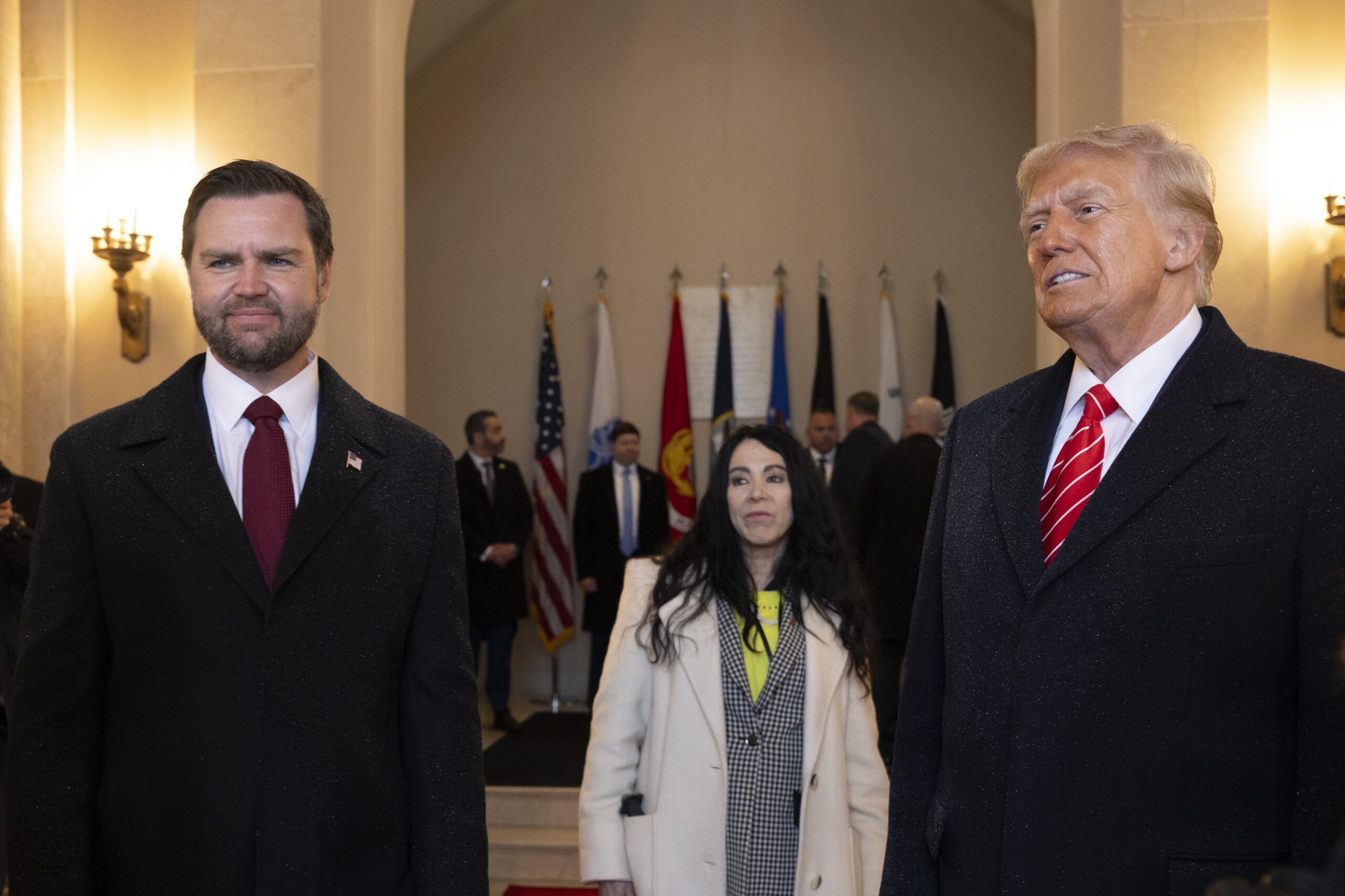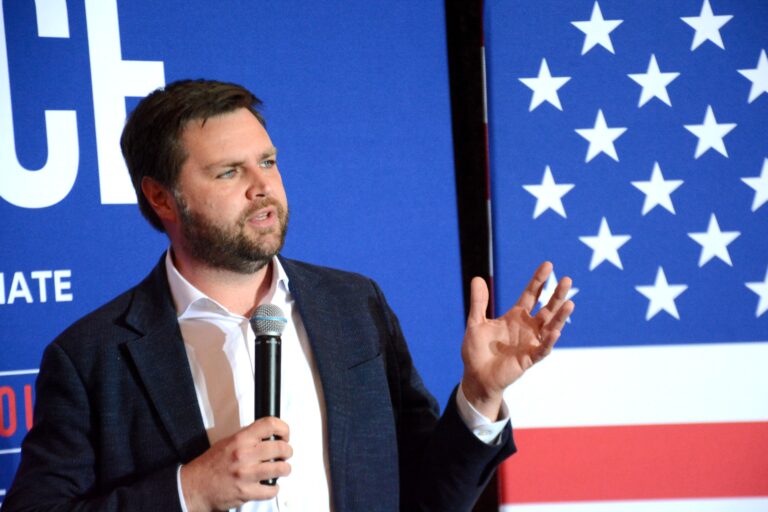In a high-stakes CBS interview, J.D. Vance, a prominent political figure and Senate candidate from Ohio, defended President Donald Trump’s controversial decision to halt a refugee program that many had supported for years. This bold move came at a time when immigration policies were under intense scrutiny, with discussions on how to balance national security and humanitarian efforts. In this article, we’ll dive deep into the interview, Vance’s defense, the broader context of the refugee program, and the implications of the halt.
The Refugee Program: A Background Overview
The United States has long been one of the world’s largest resettlers of refugees, providing a new beginning for millions of individuals who have fled violence, war, and persecution. For decades, the refugee program has been a cornerstone of American humanitarian policy, offering sanctuary to those displaced by conflict in regions such as Syria, Afghanistan, and parts of Africa. Refugees are typically individuals who cannot return to their home country due to fear of persecution based on race, religion, nationality, political opinion, or membership in a particular social group. This program is vital in fulfilling the U.S.’s obligations under international law and its tradition of offering refuge to those in need.
However, in 2020, the refugee admissions process was drastically reduced under the Trump administration, marking an all-time low in the country’s resettlement efforts. The number of refugees allowed into the U.S. dropped significantly as part of a broader strategy aimed at tightening immigration policies. This strategy was centered around concerns about national security, economic impact, and the integrity of the immigration system. The reduction in admissions was a direct result of the administration’s “America First” policy, which prioritized the needs of American citizens and aimed to limit the influx of immigrants from regions perceived as having unstable political or security conditions.
The decision to pause the refugee program was met with significant controversy both domestically and internationally. Critics argued that the move was a step away from America’s long-standing commitment to providing sanctuary to those fleeing violence and persecution. Human rights organizations, in particular, decried the decision, claiming that it violated the U.S.’s moral and legal obligations to refugees. Furthermore, many believed that the suspension of the program sent a message of intolerance, signaling that the U.S. was retreating from its role as a global leader in humanitarian efforts.
The CBS Interview: What Happened?
- J.D. Vance appeared on CBS to discuss various political topics, with a particular focus on President Trump’s decision to halt the refugee program.
- The main point of discussion was Vance’s defense of the decision, which he argued was essential for the safety of U.S. citizens and the preservation of the country’s immigration system.
- Vance emphasized that the decision to pause the program was not about denying help to those in need but about ensuring a thorough vetting process for individuals seeking asylum in the U.S.
- He highlighted the importance of national security and the risks that could arise from allowing large numbers of refugees to enter the country without adequate background checks.
- Vance pointed out that the refugee vetting process, while comprehensive, was not foolproof and could potentially allow individuals with hidden agendas to exploit the system.
- He stressed the need to prioritize the safety and security of American citizens above all, particularly in the face of global security concerns.
- In his defense, Vance argued that the pause in the refugee program would allow the U.S. to improve and streamline the vetting process, ensuring that those admitted posed no threat to the nation.
- Throughout the interview, Vance reinforced the notion that national security should take precedence in the context of immigration and refugee resettlement.
- His comments were intended to reassure voters that halting the program was a temporary measure aimed at strengthening the immigration system, not a permanent abandonment of the U.S.’s responsibility to refugees.
Vance’s Core Argument: National Security Above All
| Key Point | Explanation | Importance | Supporting Evidence | Vance’s Stance |
| National Security Priority | Vance emphasized that U.S. national security should always come first, especially in immigration policies. | Ensures the protection of American citizens from potential threats. | The need for stringent security checks in the current geopolitical climate. | National security must take precedence over humanitarian efforts. |
| Exploitation of Refugee Programs | He pointed out that refugee programs could be exploited, with some individuals possibly entering under false pretenses. | Prevents misuse of the system by those seeking to enter for reasons other than fleeing persecution. | Refers to concerns that some individuals could enter with hidden motives. | Stressed the importance of preventing exploitation while addressing genuine refugee needs. |
| Vetting Process Not Foolproof | While the vetting process is thorough, it isn’t flawless, and some security risks may slip through. | Guarantees that only those who are fully vetted can enter the U.S. | The refugee vetting process involves multiple checks, but risks remain. | Temporary suspension of the program to improve the vetting process was a necessary step. |
| Geopolitical Landscape | Given global instability, Vance argued it was critical to err on the side of caution with immigration policy. | Protects U.S. interests in an increasingly unstable world. | Increasing geopolitical threats and the rise of extremism. | The pause was an essential move in protecting national security amidst growing global risks. |
| Temporary Measure for Safety | Vance explained that halting the refugee program was a temporary decision to safeguard U.S. interests. | Ensures U.S. immigration policy remains secure in uncertain times. | The pause was a short-term measure, with future plans to enhance the system. | Viewed as a strategic, short-term measure to address immediate national security concerns. |
The Refugee Crisis and U.S. Responsibility
The refugee crisis has become one of the most pressing humanitarian issues of the 21st century, with millions of individuals displaced by war, persecution, and poverty. Countries across the world, especially those in the Middle East, Africa, and parts of Asia, have seen large portions of their populations forced to flee their homes in search of safety and a better future. For many of these displaced people, the United States has historically been seen as a beacon of hope, offering refuge and protection to those who have nowhere else to turn. The U.S. refugee program has been an essential part of the country’s foreign policy and global image, embodying the nation’s long-standing tradition of humanitarian assistance.
However, critics of President Trump’s decision to halt the refugee program argue that the U.S. has a moral responsibility to continue accepting refugees, particularly given the scale of the crisis. They contend that turning away those in need contradicts the core values of compassion and human rights that the U.S. has championed for generations. For many, the refugee program is seen not only as a legal obligation but as a moral one, one that reflects the country’s leadership role in the global community.
In the CBS interview, J.D. Vance acknowledged the gravity of the global refugee crisis. He recognized that millions of people were suffering and in desperate need of assistance, but he remained firm in his belief that the U.S. could not afford to be overly lenient in its immigration policies. Vance argued that national security concerns must come first and that, while the U.S. should continue to offer support, it had to do so in a manner that prioritized the safety of its own citizens. He pointed out that the process of accepting refugees could not be done recklessly, and that ensuring proper vetting was necessary to protect the country from potential risks.
The Impact of Trump’s Decision on Refugees
- The decision to halt the refugee program caused immediate disruptions to thousands of refugee cases that were already in process. Many individuals who were in the midst of applying for asylum found their cases delayed or put on hold indefinitely, leaving them in a state of uncertainty.
- Refugees who had hoped to find safety in the U.S. were left in a precarious situation, unsure of their future and the outcome of their applications. Many faced difficult circumstances in their home countries, and the pause in the program only compounded their struggles.
- Vance defended the decision by arguing that it was a temporary measure, meant to ensure that the refugee resettlement process was secure and efficient. He believed that by halting the program, the U.S. could improve the vetting process and make it more streamlined for both the refugees and the country.
- Vance contended that, although the pause had immediate negative effects, it would ultimately benefit refugees by creating a more secure and effective system for their resettlement. This would ensure that only those who posed no security risk would be allowed entry.
- By temporarily halting the program, Vance argued that the U.S. would be better equipped to manage future refugee admissions, making the process safer for both the refugees and the citizens of the U.S. The goal was to prevent any potential threats while still upholding the country’s responsibility to offer sanctuary to those in need.
Political Ramifications: A Divisive Issue
| Key Point | Explanation | Political Divide | Impact | Vance’s Position |
| Human Rights vs. National Security | The refugee issue has sparked significant division, with liberals prioritizing human rights and conservatives focusing on national security. | Liberals argue halting the program violates human rights, while conservatives focus on protecting borders and ensuring security. | Leads to a polarized debate between compassion and national security. | Vance defended the decision as a necessary step for national security. |
| Vance’s Political Alignment | Vance positioned himself within the conservative camp, emphasizing the importance of safety and security over humanitarian concerns. | Conservatives, like Vance, argue that protecting U.S. borders is paramount. | Positions Vance in opposition to liberal views on refugee assistance. | Focused on maintaining security as the priority in the refugee program debate. |
| Heated Debates and Protests | The decision to halt the refugee program led to heated debates and protests across the country. | The decision caused public protests and political contention, with both sides fiercely defending their stance. | Increased political tension and public demonstrations. | Vance acknowledged the protests but maintained that national security should prevail. |
| Key Issue in 2020 Election | Trump’s refugee policy became a focal point in the 2020 election, with candidates using it as a key talking point. | Candidates from both political parties debated the implications of halting the program, framing it as a key election issue. | Refugee policy became central to the political narrative of the election cycle. | Vance aligned himself with Trump’s stance, defending it during political discussions. |
| Values of Compassion vs. Security | The political discussion centered around whether the U.S. should prioritize compassion for refugees or the safety of its citizens. | Liberals emphasize compassion, while conservatives stress the need for security. | Deepened the divide between political parties and their views on immigration and refugee policies. | Vance argued that security concerns must outweigh the need for immediate compassion. |
Immigration and the 2020 Election: How This Fits In
During the 2020 election cycle, immigration emerged as one of the most contentious and polarizing issues. President Trump’s firm stance on restricting immigration, particularly from Muslim-majority countries, was a central part of his political platform. His decision to halt the refugee program further fueled debates about the direction of U.S. immigration policy and its implications for national security and humanitarian responsibilities. As a result, the refugee issue became a lightning rod for political discourse, with candidates on both sides of the aisle arguing over the appropriate balance between protecting U.S. citizens and providing refuge to those in need.
Vance’s defense of President Trump’s decision to pause the refugee program came at a pivotal moment during the election cycle. Many voters were grappling with the question of how best to balance national security concerns with the U.S.’s long-standing commitment to humanitarian aid. For those who prioritized security, the decision to limit refugee admissions was seen as necessary to prevent potential threats from entering the country. Conversely, opponents viewed the move as a betrayal of the U.S.’s moral obligations to refugees fleeing war and persecution. In this charged political atmosphere, Vance’s statements served as a clear endorsement of Trump’s immigration policies, solidifying his position within the conservative camp.
As a Senate candidate, Vance was acutely aware of the political ramifications of his stance on immigration. The topic was a significant point of division in the election, and aligning himself with Trump’s policies allowed him to appeal to conservative voters who felt that the country’s immigration system had become too lenient and inefficient. Many conservatives viewed the existing system as vulnerable to exploitation, and they supported policies that prioritized national security and border control. By defending Trump’s decision to pause the refugee program, Vance aimed to strengthen his support among this critical voter base, demonstrating his commitment to securing U.S. borders and upholding American values.










